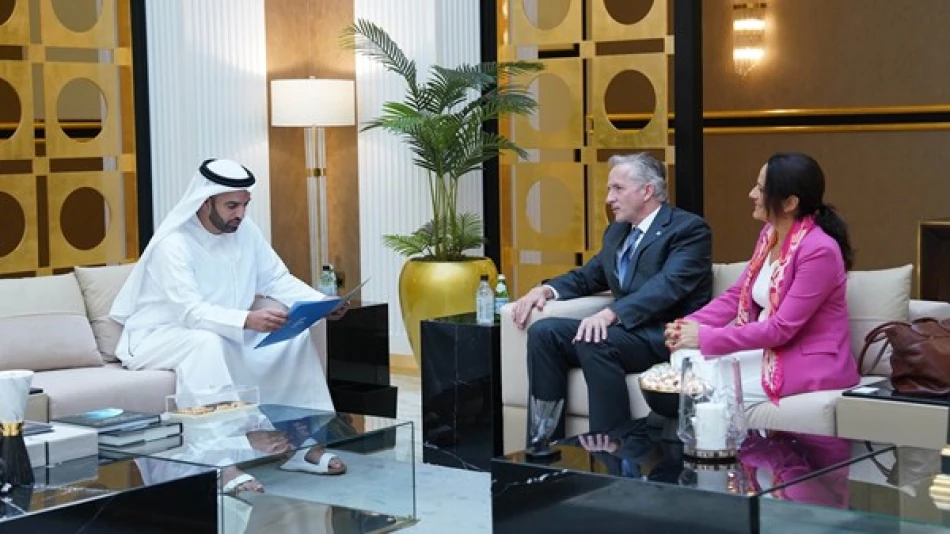
Ras Al Khaimah Crown Prince Welcomes WFP Representative for Gulf Region
UAE Royal Emerges as Global Humanitarian Leader with Major Gaza Food Aid Contribution
Sheikh Mohammed bin Saud bin Saqr Al Qasimi, Crown Prince of Ras Al Khaimah, has been recognized as one of the world's top five individual donors to the UN World Food Programme's Gaza operations, highlighting the UAE's growing influence in international humanitarian diplomacy amid escalating regional crises.
Recognition from Global Food Security Leadership
During a high-level meeting at the Nad Al Habi Majlis in Ras Al Khaimah, Stephen Anderson, Director of the World Food Programme's UAE office and regional representative for Gulf Cooperation Council states, conveyed personal gratitude from WFP Executive Director Cindy McCain. The recognition underscores the Crown Prince's substantial personal financial commitment to addressing the humanitarian catastrophe in Gaza.
Anderson emphasized how the Crown Prince's donation has enabled the WFP to deliver life-saving food assistance to thousands of families in Gaza, where humanitarian conditions have deteriorated dramatically in recent months.
Strategic Humanitarian Diplomacy in Action
UAE's Expanding Global Role
This recognition places the UAE firmly within the ranks of major humanitarian powers, traditionally dominated by Western nations and established philanthropic foundations. The Crown Prince's inclusion among the world's top five individual WFP donors signals the Gulf state's strategic shift from regional aid provider to global humanitarian leader.
The timing is particularly significant as international aid organizations face unprecedented funding shortfalls while humanitarian crises multiply across conflict zones from Ukraine to Sudan to Gaza.
Gaza's Humanitarian Crisis Context
The WFP has repeatedly warned of catastrophic food insecurity affecting Gaza's population of over 2.3 million people. With traditional supply chains disrupted and access severely limited, international donations have become critical lifelines for basic survival.
The Crown Prince's contribution arrives as the WFP struggles with a global funding gap that has forced the organization to reduce operations in multiple crisis zones worldwide.
Implications for Regional Leadership
Soft Power Strategy
This humanitarian leadership reflects the UAE's broader strategy of leveraging soft power diplomacy to enhance its international standing. By positioning Emirati royalty among the world's most significant individual humanitarian donors, the UAE demonstrates its capacity to influence global crises beyond traditional diplomatic channels.
The approach mirrors successful soft power strategies employed by nations like Norway and Switzerland, where humanitarian leadership translates into diplomatic influence and international respect.
Gulf Philanthropy Evolution
The recognition also highlights the evolution of Gulf philanthropy from traditional regional charity to strategic global humanitarian engagement. Unlike previous generations of Gulf giving, which often focused on religious or cultural causes, this contribution targets secular international organizations addressing global crises.
This shift suggests a maturing approach to international relations, where humanitarian leadership serves both moral imperatives and strategic diplomatic objectives in an increasingly multipolar world.
Most Viewed News

 Layla Al Mansoori
Layla Al Mansoori






